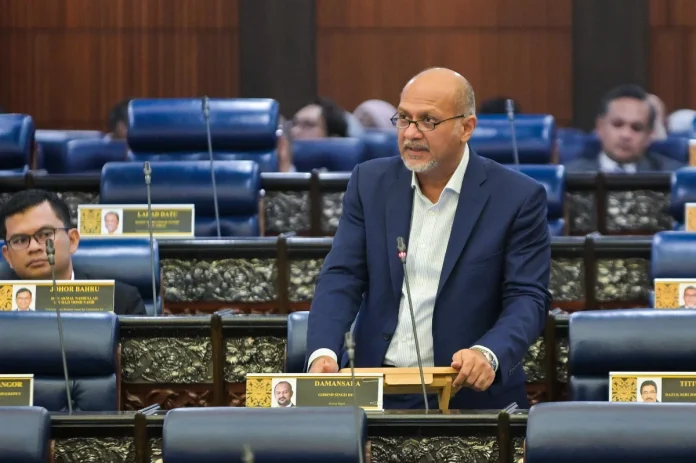Digital Minister Gobind Singh Deo announced the AI legislative framework will be presented to Cabinet in June 2026, focusing on balanced regulation that promotes innovation while addressing risks.
KUALA LUMPUR: The Artificial Intelligence legislative framework is scheduled for presentation to the Cabinet in June 2026, Digital Minister Gobind Singh Deo revealed in Parliament.
He said the framework was drafted based on four main components covering non-legislative matters, standards-based approaches, regulatory elements, and specific legislation requirements.
“We will divide it into certain aspects because we also need to obtain input from the industry,” Gobind said during the Dewan Rakyat question-and-answer session. “We do not want laws that limit innovation while ensuring technology can develop in the country.”
The minister was responding to Ahmad Fadhli Shaari (PN-Pasir Mas) who inquired about regulatory scope for AI laws, including mandatory watermarking and algorithm audits.
On public AI literacy, Gobind said the government is strengthening efforts through CyberSecurity Malaysia’s awareness programmes.
He emphasised the initiative aims to produce cautious AI users who can assess digital security risks maturely and avoid being easily influenced by chatbot-generated information.
Regarding regulatory updates, Gobind confirmed the government is reviewing several key laws including the Evidence Act 1950 and Contracts Act 1950.
This move aims to strengthen the existing legal framework alongside development of the AI Governance Bill to address risks across all sectors.
The government has established an AI Act Development Committee to draft specific laws controlling technology misuse, particularly deepfakes and information manipulation risks ahead of the next General Election.
Gobind described this as part of a layered approach covering legal aspects, content monitoring and public awareness to preserve social harmony amid rapid AI adoption.
Strengthening existing laws involves implementing the Cyber Security Act 2024, Personal Data Protection (Amendment) Act 2024 and Online Safety Act 2024.
The National Cyber Security Agency is also drafting a Cybercrime Bill to replace the Computer Crime Act 1997, he told Datuk Mohd Isam Mohd Isa (BN-Tampin).
For content monitoring, the Malaysian Communications and Multimedia Commission is using the Communications and Multimedia Act 1998 to detect false information and deepfakes.
Responding to Shaharizukirnain Abd Kadir (PN-Setiu) about the National Guidelines on AI Governance, Gobind said the ministry is collaborating with local universities to develop image and video verification applications.
This development will form the basis for setting new security standards to address AI misuse concerns.








